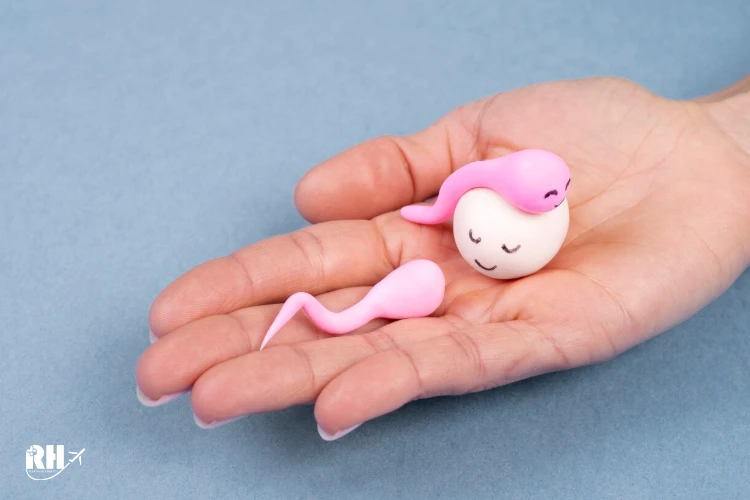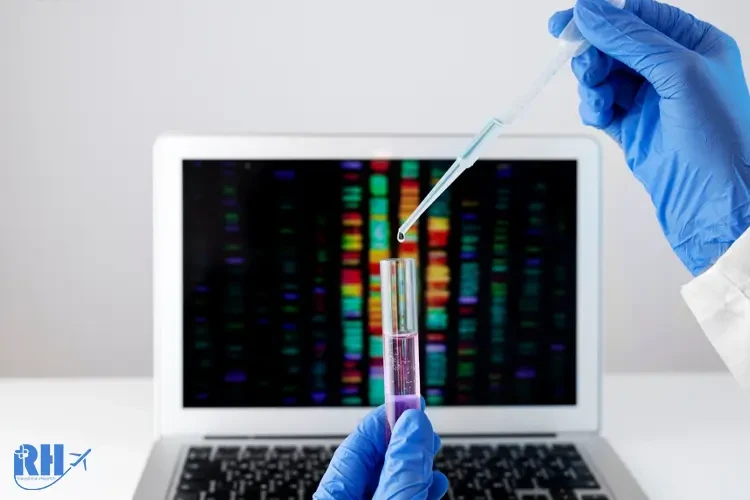Egg donation is a sensitive process that requires careful selection of volunteers. Age, general health status, history of genetic and infectious diseases, mental health, and lifestyle are among the most important criteria for accepting donors. Infertility centers usually select women who are between 21 and 32 years old, physically healthy, and mentally and morally prepared to enter the process. Understanding these conditions helps applicants make a more informed decision.
One of the methods of treating infertility is surrogacy, in which the fetus is carried in the womb by a surrogate mother and is performed in both traditional and modern ways. The surrogacy process has many challenges in ethical, religious, legal, and social fields. In this article, we will learn more about the various aspects of surrogacy.
Traditional surrogacy and gestational surrogacy are two assisted reproductive methods that can help infertile couples have children. In traditional surrogacy, the surrogate uses her own egg and carries the baby, so she is the child’s genetic mother. This method is cheaper and simpler but can cause emotional and legal problems because the surrogate is biologically linked to the baby. In gestational surrogacy, an embryo made from the intended parents’ eggs and sperm is transferred to the carrier’s uterus through IVF. The carrier has no genetic link to the baby, which makes legal rights and parentage clearer, though the process is more expensive and medically complex. Today, gestational surrogacy is more common and widely accepted.
Despite its widespread use in infertility treatment, surrogacy is carried out under strict medical and legal supervision. In some circumstances, a doctor or medical center may not agree to a person's request for surrogacy. Chronic diseases, uterine problems, unstable mental conditions, advanced age, lack of previous pregnancy experience, and lack of legal or religious approval are among the most important reasons for rejecting surrogacy.
Surrogacy is one of the most successful infertility treatments, with success rates between 60% and 90%. Success depends on egg and sperm quality, the surrogate’s health, embryo quality, and the expertise of fertility clinics. In Iran, advanced fertility clinics, skilled doctors, and affordable surrogacy packages ensure a 70–80% success rate, making it a top destination for international patients seeking reliable infertility treatment.
Surrogacy is a safe infertility treatment where another woman carries a baby for intended parents, but many couples wonder if the child will resemble the surrogate or inherit her DNA. When the embryo is created with the parents’ own egg and sperm, the baby’s genetics come only from them, not the surrogate. With advanced IVF and genetic testing in Iran, couples can ensure healthy pregnancies, choose the best embryos, and even manage gender selection.
Genetic testing in surrogacy plays a crucial role in ensuring a healthy baby by detecting inherited and chromosomal disorders before and during pregnancy. Through IVF surrogacy, preimplantation tests such as PGD, PGS, and PGT-SR allow doctors to select the healthiest embryos, while prenatal screenings like amniocentesis, CVS, and NIPT further monitor the baby’s development.
In IVF surrogacy, the baby’s DNA comes entirely from the egg and sperm of the biological parents (or donors), meaning the surrogate mother does not share DNA with the baby unless she also provides the egg. While minimal cell transfer may occur through the placenta and the surrogate’s lifestyle can influence gene expression, these factors do not alter the child’s genetics.
In surrogacy, the baby inherits all genetic traits from the biological parents (egg and sperm providers), not the surrogate mother. The surrogate only provides a nurturing womb environment that may influence gene expression through epigenetics, affecting aspects like growth, weight, or temperament, but not facial features or genetic resemblance. If the intended mother’s egg is used, the child will fully resemble the biological parents, while with donor eggs, 50% of the traits come from the donor. Therefore, the baby will never look like the surrogate unless she is also the egg donor.
Surrogacy brings hope to infertile couples but poses unique psychological challenges for surrogate mothers, including social stigma, legal uncertainty, hormonal changes, and emotional attachment to the baby. To protect both mother and child, continuous mental health care is essential through counseling, emotional support, stress management, proper rest, and a pregnancy diet.









